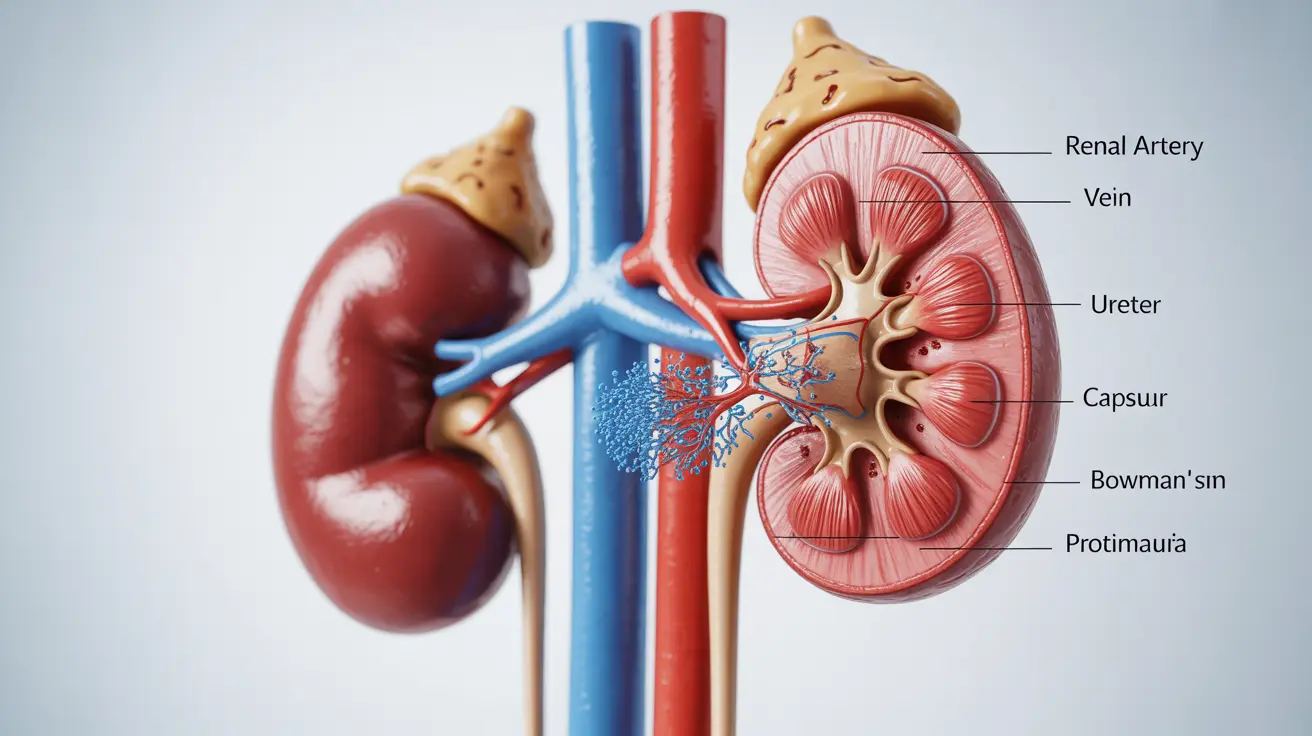Finding protein in your urine can be concerning, but understanding its causes and implications is crucial for maintaining your kidney health. While small amounts of protein in urine might occasionally be normal, persistent or high levels could indicate an underlying health condition that requires medical attention.
This comprehensive guide explores the causes of protein in urine (proteinuria), its symptoms, diagnostic procedures, and available treatment options. We'll also discuss when you should seek medical attention and what lifestyle changes might help manage this condition.
Common Causes of Protein in Urine
Several factors can lead to protein appearing in your urine, ranging from temporary conditions to more serious health issues:
Temporary Causes
- Dehydration
- Intense physical exercise
- Extreme heat or cold exposure
- Emotional stress
- Fever or infection
Medical Conditions
- Diabetes
- High blood pressure
- Lupus and other autoimmune disorders
- Kidney infections
- Glomerulonephritis (inflammation of kidney filtering units)
- Preeclampsia during pregnancy
Recognizing the Signs and Symptoms
Protein in urine often doesn't cause noticeable symptoms in its early stages. However, when levels become significant, you might experience:
- Foamy or bubbly urine
- Swelling in your hands, feet, or face
- Frequent urination
- Fatigue
- Loss of appetite
- Muscle cramps
Diagnosis and Testing Methods
Healthcare providers use several tests to diagnose and monitor protein in urine:
Initial Screening
- Dipstick urine test
- Random urine sample analysis
- 24-hour urine collection
Additional Diagnostic Tests
- Blood tests to check kidney function
- Imaging studies (ultrasound or CT scan)
- Kidney biopsy in some cases
Treatment Approaches
Treatment for protein in urine focuses on addressing the underlying cause:
Medical Interventions
- Blood pressure medications
- Diabetes management
- Immune system medications for autoimmune conditions
- Antibiotics for infections
Lifestyle Modifications
- Reducing sodium intake
- Maintaining healthy blood pressure
- Managing blood sugar levels
- Regular exercise
- Maintaining a healthy weight
Frequently Asked Questions
What causes protein in urine and how can I tell if it is serious? Protein in urine can be caused by temporary factors like exercise or serious conditions like kidney disease. It's considered serious if levels are consistently high or accompanied by other symptoms like swelling or fatigue.
What symptoms should I look for if I have protein in my urine? Watch for foamy or bubbly urine, swelling in your face, hands, or feet, frequent urination, fatigue, and decreased appetite. If you notice these symptoms, consult your healthcare provider.
How is proteinuria diagnosed and what tests are used? Diagnosis typically begins with a dipstick urine test, followed by more detailed urine analysis, including 24-hour urine collection. Blood tests and imaging studies may also be necessary.
What treatments are available to reduce protein in urine caused by kidney problems? Treatment options include medications to control blood pressure and inflammation, managing underlying conditions like diabetes, and specific medications depending on the cause of kidney problems.
Can lifestyle changes help prevent or manage protein in urine? Yes, lifestyle modifications can help manage protein in urine. These include maintaining a healthy diet low in sodium, regular exercise, weight management, and controlling conditions like diabetes and high blood pressure.
If you notice persistent signs of protein in your urine or experience related symptoms, consult your healthcare provider for proper evaluation and treatment guidance.




